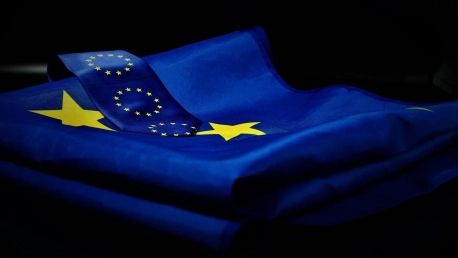In the dynamic landscape of financial investments, the allure of ‘green’ has never been stronger. As more investors seek to balance their portfolios with environmentally conscious investments, the specter of greenwashing has loomed larger than ever. Within the financial sector of the European Union, the deceptive practice of greenwashing, where companies overstate their environmental initiatives to appear more sustainable, is an escalating concern. Yet addressing this challenge has proven to be a knotty affair for regulators grappling with its complexities.The issue is multi-faceted, touching on the need for transparency, verifiability, and enforcement—elements that ensure the integrity of green investments. As the sector brims with capital inflows aimed at environmentally friendly ventures, the task of discerning genuine ESG (environmental, social, and governance) compliance from mere window-dressing becomes critical.
The Struggle for Adequate Oversight
The Regulatory Resource Crunch
Greenwashing, a deceptive act that undermines trust in sustainable finance, has become a herculean task for Europe’s market watchdogs to tame. Despite heightened awareness, the European Securities and Markets Authority (ESMA) finds itself handcuffed by a dearth of essential resources. In the push and pull of regulatory oversight, the tangible lack of robust enforcement casts shadows on the EU’s commendable green initiatives. National competent authorities (NCAs), the regional stewards of market integrity, echo this sentiment, acknowledging their plight of insufficient resources, expertise, and data quality – all instrumental in effectively policing greenwashing.The ESMA has underscored efforts to ramp up capacity against such deceitful claims by improving staff training. Nevertheless, the consensus among NCAs is clear: they are outgunned, striving to keep pace with the burgeoning demands of a financial ecosystem heavily invested in ‘green’ narratives. Their tools and knowledge must be bolstered to discern the green from the greenwashed.
Rising Cases, Rising Concerns
The numbers paint a stark portrait of the challenge at hand. In a startling revelation, the European Banking Authority (EBA) reported a 26% rise in alleged greenwashing incidents in 2023, signaling a trend that cannot be ignored. This surge underscores the critical juncture at which EU regulators find themselves as they scramble to match the increasing sophistication of companies’ environmental claims. Amidst this upswing, the EBA has put forth an idea that may well tilt the scales in favor of authenticity: external verification. By holding banks and financial institutions to account through independent checks, EU regulators might just enhance their arsenal in ensuring the legitimacy of sustainability claims.Yet, the twin issues of capability and precedent linger ominously. With few formal enforcement actions underpinning their cause, NCAs and bodies like ESMA labor under the strain of inadequate precedent, further complicating their task of safeguarding the green integrity of Europe’s financial corridors. The evolving narrative is clear – as vigilance sharpens and scrutiny tightens, the regulatory machinery must evolve to keep pace with the market’s complexity.
Towards Authentic Green Finance
The Urgent Call for Enhanced Capabilities
The emphasis on ‘green’ isn’t disappearing anytime soon, and neither are the deceivers cloaking themselves in its verdant hues. For the financial watchdogs of the EU to effectively curb the tide of greenwashing, a commensurate expansion in their resource allocations is essential. This is the heart of the matter: bolstering the capabilities of EU market regulators is not simply an administrative necessity but an imperative for cultivating genuine sustainability in finance.Reflecting the urgency to stem the flow of greenwashed products, there is a clear rallying cry among EU regulators for the tools and support needed to confront this issue head-on. With greater investments in expanding expert capabilities and enhancing data quality, these bodies aim to refine their investigative precision and affirm the trustworthiness of environmental claims within the financial landscape.
The Prevention Puzzle
Greenwashing remains a formidable challenge for Europe’s financial overseers. The efforts by the European Securities and Markets Authority (ESMA) to combat this issue are hampered by a significant shortage of resources. With regulatory scrutiny on the rise, the lack of strong enforcement measures dampens the impact of the EU’s green initiatives. National competent authorities (NCAs) agree, citing their struggles from a shortage of resources, expertise, and reliable data, which are critical in curbing greenwashing.Despite persistent challenges, ESMA is reinforcing its strategy to fight fraudulent environmental claims by boosting staff training. Yet, NCAs still find themselves outmatched when battling the influx of misleading ‘green’ claims within the financial sector. To succeed in this battle, they must be equipped with better tools and sharper expertise to effectively distinguish truly sustainable practices from those merely painted green.









